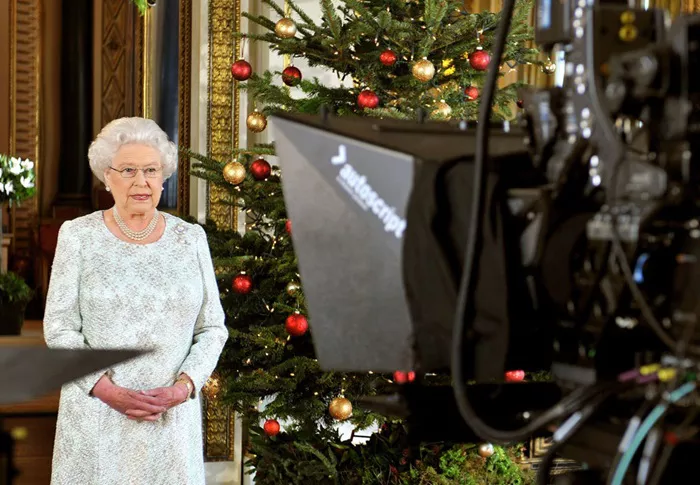December 25, known primarily as Christmas Day, has been a significant date in British history, marked by various notable events spanning centuries. This article examines the key occurrences that took place on this day, highlighting their historical context and impact.
What Happened on December 25 in British History?
The Coronation of William the Conqueror (1066)
On December 25, 1066, William the Conqueror was crowned King of England at Westminster Abbey. This event was pivotal as it marked the beginning of Norman rule in England following William’s victory over King Harold II at the Battle of Hastings just two months earlier. The coronation symbolized the end of Anglo-Saxon dominance and the establishment of a new social and political order in England.William’s claim to the English throne was based on his distant kinship with Edward the Confessor, who had died without an heir. His coronation was a carefully orchestrated affair designed to legitimize his rule and consolidate power over a kingdom that had been resistant to foreign control. The ceremony itself followed traditional Christian rites, which helped to integrate Norman customs with existing English traditions.
The First Eisteddfod (1176)
Another significant event on December 25 occurred in 1176 when the first Eisteddfod, a festival of Welsh literature and music, took place at Cardigan Castle. This cultural gathering celebrated Welsh poetry and music, showcasing the rich heritage of Wales during a time when it was under English rule.The Eisteddfod has since evolved into an annual event that continues to celebrate Welsh culture and language. It serves as a reminder of Wales’ distinct identity within the United Kingdom and highlights the importance of cultural preservation.
The Christmas Truce (1914)
Perhaps one of the most poignant events associated with December 25 is the Christmas Truce during World War I in 1914. On this day, British and German soldiers along the Western Front engaged in an informal ceasefire. Soldiers from both sides emerged from their trenches to exchange greetings, share food, and even play football in no man’s land.This spontaneous truce reflected a momentary lapse in hostilities amidst one of history’s deadliest conflicts. It demonstrated a shared humanity that transcended national boundaries, as soldiers sought solace in camaraderie during a time of war. While not universally observed along the front lines, where some commanders discouraged such interactions, it remains a powerful symbol of peace during wartime.
The First Royal Christmas Broadcast (1932)
On December 25, 1932, King George V delivered the first-ever Royal Christmas Broadcast to the Empire. This tradition has continued annually, with subsequent monarchs addressing their subjects through radio and television. The broadcasts serve to connect the monarchy with citizens across Britain and the Commonwealth, providing messages of hope and unity during challenging times.King George V’s address focused on themes of peace and goodwill, reflecting the global context of his reign during the interwar period. Over time, these broadcasts have become an integral part of British Christmas celebrations, fostering a sense of national identity.
The Stone of Scone Theft (1950)
In a dramatic turn of events on December 25, 1950, Scottish nationalists stole the Stone of Scone, also known as the Stone of Destiny, from Westminster Abbey. This stone has been historically significant as it was used in the coronation of Scottish kings for centuries before being taken by Edward I to England in 1296.The heist was executed by a group of students who aimed to highlight Scotland’s national identity and protest against English rule. Although they successfully removed the stone from its resting place, it broke during transport. The group later returned it to Scotland after repairs were made. This event reignited discussions about Scottish nationalism and autonomy within Britain.
The Impact of Christmas Celebrations
Throughout history, December 25 has also been associated with various cultural practices related to Christmas celebrations in Britain. Initially observed with solemnity as a religious holiday commemorating the birth of Jesus Christ, Christmas evolved into a more festive occasion over time.In 17th century England, however, Puritan leaders condemned Christmas celebrations as remnants of Catholicism. They banned public festivities in 1647, leading to widespread protests and riots among those who wished to celebrate traditionally. Following the Restoration in 1660, Christmas regained its status as a public holiday.The evolution of Christmas traditions reflects broader societal changes within Britain. From simple church services to elaborate feasts and family gatherings, these celebrations have become integral to British culture.
Conclusion
December 25 holds profound significance in British history through various events that have shaped national identity and cultural practices. From William the Conqueror’s coronation to moments of peace during wartime and cultural celebrations like the Eisteddfod, each occurrence on this date has contributed to Britain’s rich historical tapestry.As we reflect on these events, it is essential to recognize how they continue to influence modern British society and culture today. Whether through royal traditions or communal celebrations, December 25 remains a day that encapsulates both historical significance and contemporary relevance within British life.
Related Topics:

